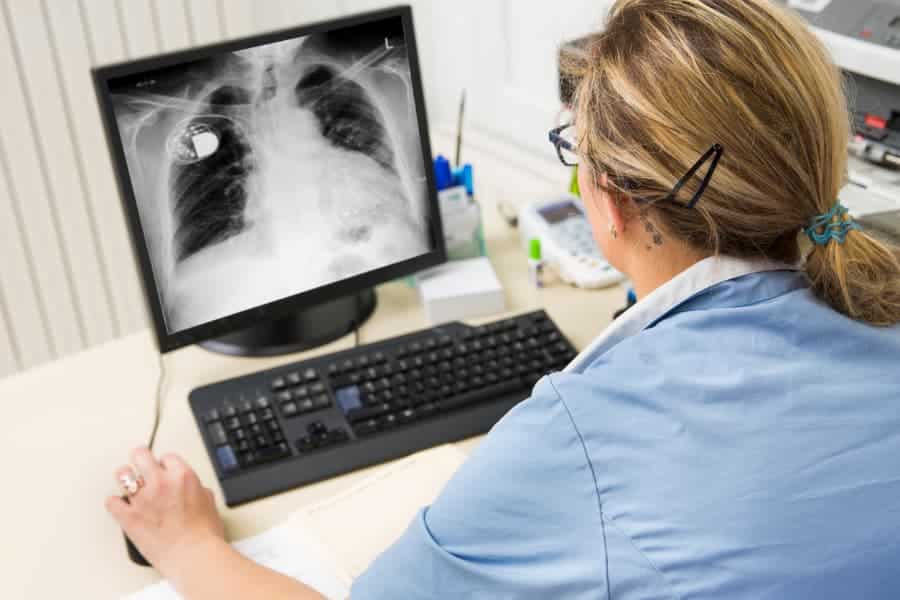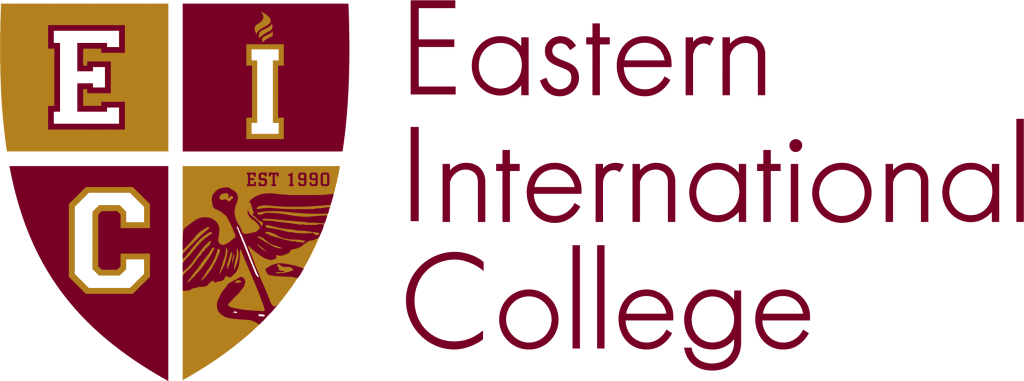
Starting a career as a cardiovascular technologist can be a rewarding experience. Working with patients to identify, treat and resolve their heart issues can provide a sense of purpose and satisfaction. This job requires cardiovascular technology training so you know how to operate the medical equipment and use it to complete common procedures. Eastern International College is proud to offer a CAAHEP Accredited, Associate’s Degree in Cardiovascular Technology that will prepare you with the knowledge you’ll need to succeed in this career. Here, we’ll explain just a few of these essential skills.
Cardiovascular Ultrasounds
Learning how to conduct cardiovascular ultrasounds is a key part of training for cardiovascular technologist students studying non-invasive echocardiography. These ultrasounds use reflected sound waves to provide a live view of a patient’s heart and valves. This is a quick and painless procedure that allows a doctor to monitor how a heart is functioning and if there are any issues. As a cardiovascular technologist, you will be the one to move the transducer around on a patient’s body in order to get several different views of the heart. Being skilled in how to effectively capture these images is important, as is knowing how to properly interact with the patient so that they feel comfortable and relaxed.
Stress Testing
To diagnose some heart conditions or determine the proper exercise level, doctors may have patients undergo a stress test. This procedure involves hooking up a patient to a treadmill and measuring their heart rate, breathing and exertion. As a cardiovascular technologist, you will be involved with attaching the testing equipment to the patient, changing the intensity of the treadmill and monitoring their electrocardiogram and other metrics during the test. Afterwards, you may work with a physician to interpret the collected data and determine if further diagnostics or treatment are needed.
Holter Monitors
Another device that tracks a person’s heart activity is a Holter monitor. These monitors record electrocardiograms over a one- or two-day period so doctors can check if there are any irregularities in a patient’s heartbeat. They are portable and run on batteries, allowing the monitor to be carried on the person’s body at all times. Applying a Holter monitor involves placing electrodes on a patient’s chest using adhesives. Once the test is over, a cardiovascular technologist will process the collected information from the monitor, review an activity and symptom diary kept by the patient and write up a report for the doctor to review. This requires an in-depth knowledge of the human heart and analysis of ECG and EKG charts. Being able to synthesize this information into a digestible summary necessitates excellent communication and written skills.
Pacemakers
If a patient’s Holter monitor trial reveals that they have an irregular heartbeat, it may mean a pacemaker should be installed. Pacemakers help the heart beat at regular intervals by stimulating it with electrical impulses. These small, battery-operated devices are usually installed underneath a patient’s skin and attached to the heart with wires. However, not all pacemakers are permanent. Temporary pacemakers can be placed outside of the skin and will only be used over a predetermined amount of time.
A pacemaker is directly connected to a patient’s heart, so having a deep knowledge of the heart’s structure and function is required. Prospective cardiovascular technologists must also be able to recognize an irregular heartbeat and set the pacemaker to send impulses at the right intervals in order to correct the problem.
Make a Difference
If you find yourself wanting to help people through your career, then mastering cardiovascular technology training is a great way to accomplish that goal. Eastern International College’s Cardiovascular Technology Program uses hands-on training and instruction from experienced faculty members to equip you with the skills and knowledge needed to excel in your field. To find out more information about this CAAHEP accredited program, contact us online, or schedule a tour of our Belleville and Jersey City campuses.
